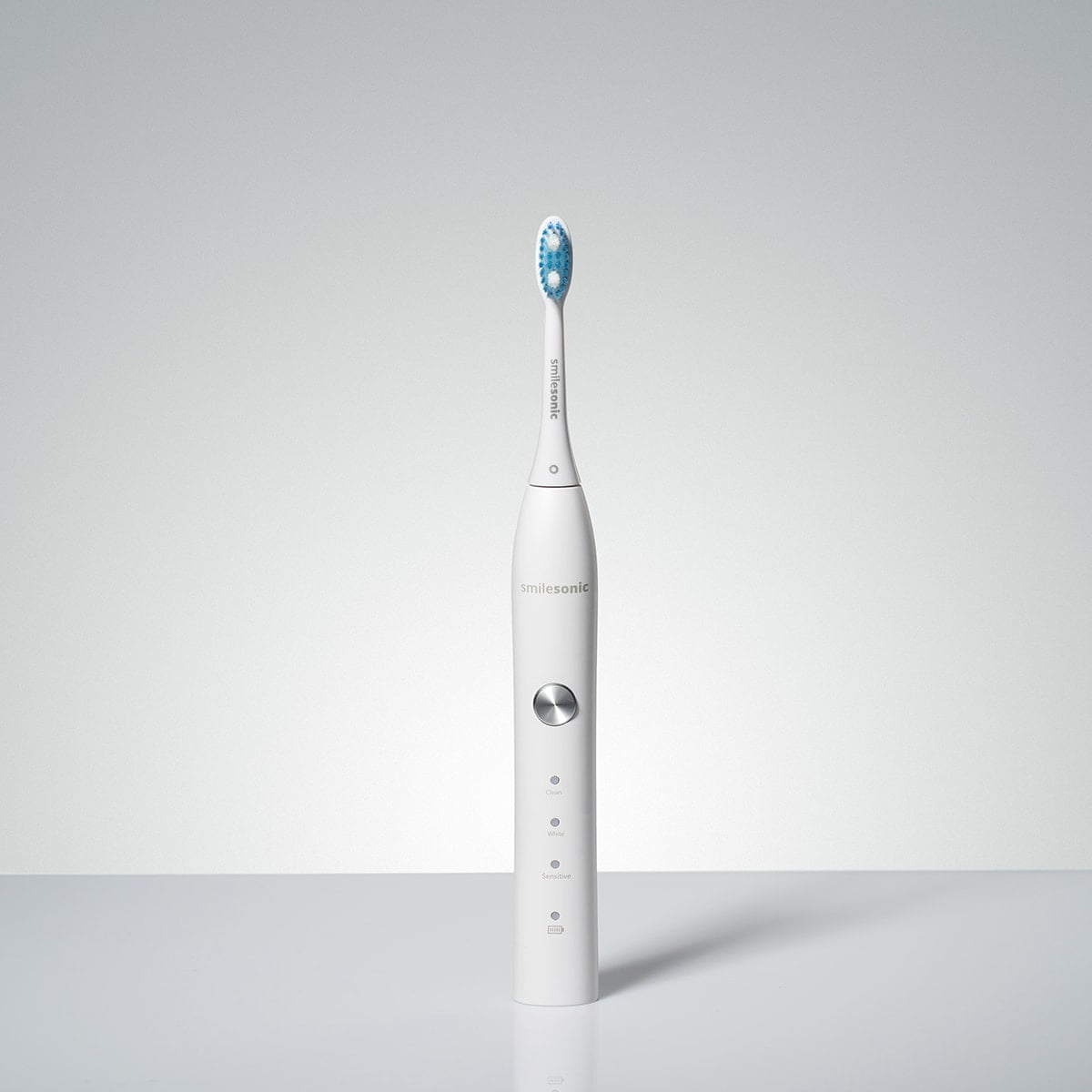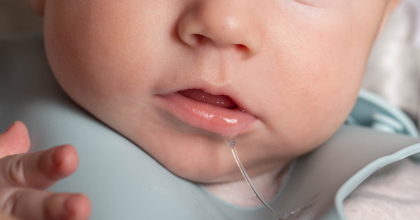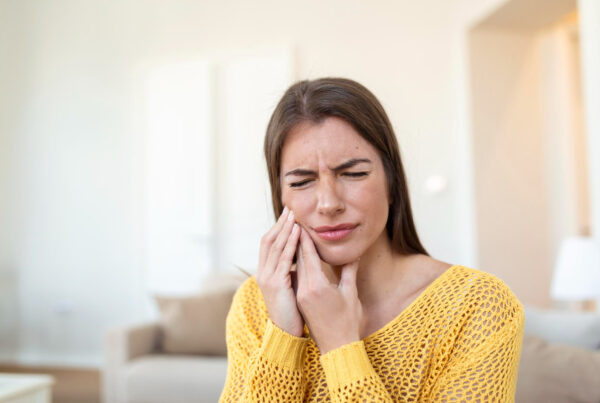Throbbing tooth pain – what causes it, is it a sign of illness, and how to relieve it?
Throbbing pain in the area of a tooth is a condition that significantly affects the quality and comfort of life. It manifests as rhythmic, intense discomfort, often worsening at certain times of day or when exposed to stimuli such as heat or cold. It is important to understand the causes and ways to manage this issue. In this article, we answer the most frequently asked questions, including how to effectively relieve pain.
Most common causes of throbbing tooth pain
Rhythmic pain, often worse at night or while eating, may indicate various underlying issues.
Tooth decay
Tooth decay is the demineralization of enamel caused by bacteria in the mouth. It is one of the most common reasons for throbbing pain in teeth. Initially, it may be asymptomatic, but once bacteria reach the dental pulp, they trigger inflammation that leads to intense pain. Symptoms include sensitivity to sweet, hot, and cold foods, and bad breath. If left untreated, tooth decay can lead to pulp necrosis and infection in surrounding tissues.
Pulp inflammation (pulpitis)
Pulpitis occurs due to bacterial infection or mechanical trauma. It can be reversible if mild or irreversible, requiring root canal treatment. It causes intense pain that worsens when lying down or at night.
Periapical infections
If pulpitis is ignored, bacteria may spread to tissues around the tooth root, forming an abscess. Symptoms include severe pain, facial and gum swelling, fever, and discomfort when chewing. Untreated infections can lead to life-threatening conditions like osteomyelitis or sepsis.
Wisdom teeth
Wisdom teeth often cause intense pain, especially in young adults. Improper eruption, such as impaction or misalignment, leads to radiating pain, swollen gums, and difficulty opening the mouth. The issue may progress to pericoronitis or crowding of adjacent teeth.
Gum diseases
Gum diseases like periodontitis can cause persistent pain, especially if infection is present. Common symptoms include swelling, redness, and bleeding gums. In advanced stages, gum recession and tooth root exposure may occur, leading to sensitivity and eventual tooth loss.
Post-treatment complications
Persistent pain may follow recent dental work due to nerve damage or improperly fitted fillings and crowns. Discomfort while biting and intense pain may result from complications or incomplete root canal treatment.
Dental trauma
Cracks or broken teeth expose the pulp and cause irritation or inflammation. This usually results from sports injuries or chewing hard objects. Symptoms include sudden, sharp pain.
Tooth sensitivity
Tooth sensitivity results from exposed tooth necks or damaged enamel. It causes short, sharp pain in response to specific stimuli.
All of these examples highlight the need for a professional dental consultation. A dentist will determine the source of pain, which may not always be related to the teeth. They will also answer key questions about oral hygiene and related diseases caused by lack of regular care.
How to relieve throbbing tooth pain – treatment options
Effective treatment depends on the underlying cause. Relief methods range from home remedies to professional dental procedures.
Home remedies for throbbing tooth pain
Before visiting a dentist, home remedies can help reduce discomfort. Rinsing the mouth with warm salt water has antiseptic effects and reduces inflammation. Cold compresses can help relieve swelling and pain caused by trauma or infection. Over-the-counter pain relievers like ibuprofen or paracetamol provide temporary relief and reduce inflammation.
Dental treatment when home remedies don’t work
Professional treatment is essential if pain persists or is accompanied by swelling, fever, or abscess formation. If decay is the cause, the dentist removes the infected tissue and fills the cavity. In advanced cases, such as pulpitis, root canal therapy may be necessary. This involves removing infected pulp, cleaning root canals, and sealing them. This procedure effectively eliminates pain and prevents further infection.
Tooth extraction may be necessary when a tooth is too damaged to save. This helps relieve pain and prevents complications such as the spread of infection. After extraction, the dentist may recommend options like implants, bridges, or dentures.
Antibiotic therapy is used for bacterial infections like abscesses. Antibiotics reduce inflammation, allowing for effective follow-up dental treatment. They must be prescribed by a dentist, who will choose the proper type and dosage based on the condition.
Preventing recurrence is crucial. Regular dental visits help detect and treat problems early. Professional cleaning prevents gum disease and cavities. Daily oral hygiene, including brushing with fluoride toothpaste and flossing, is essential. Reducing sugar intake and following a balanced diet rich in calcium and vitamin D also supports oral health.
READ MORE: Toothache radiating to the ear
How to prevent tooth pain?
Here are some important tips:
- Brush your teeth at least twice a day with fluoride toothpaste to remove plaque and prevent decay.
- Use dental floss daily to clean between teeth.
- Avoid excessive sugar and acidic foods that weaken enamel and cause sensitivity.
- Visit the dentist at least every six months to detect early signs of dental issues.
- Use antibacterial mouthwash to reduce harmful bacteria.
- Avoid sudden temperature changes in food and drinks.
- Wear a mouthguard if you grind your teeth at night.
- Seek treatment for dental problems without delay.
When to see a dentist?
Persistent tooth pain is a warning sign that should not be ignored. If the pain continues, intensifies, or is accompanied by swelling, fever, difficulty chewing, or sensitivity to temperature, consult a dentist promptly. Presence of pus may indicate an abscess that needs urgent treatment. A quick response and proper treatment help protect your oral and overall health.
Conclusion
Throbbing tooth pain should never be ignored, as it may signal serious health issues requiring immediate dental intervention. While home remedies may offer temporary relief, only professional care can eliminate the cause. Regular oral hygiene and dental check-ups are the best prevention. By taking care of your teeth and gums, you support your general health and well-being every day.





